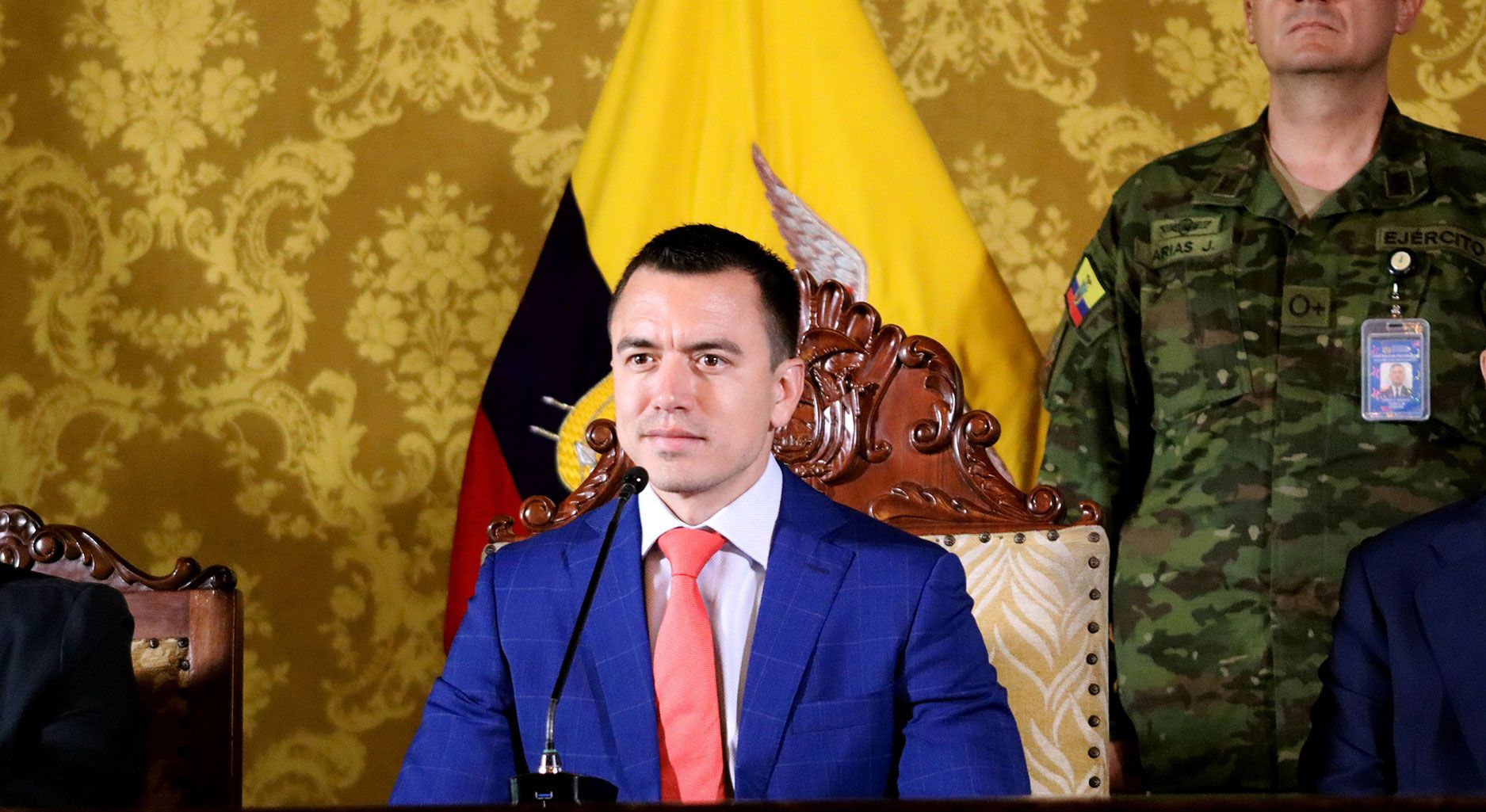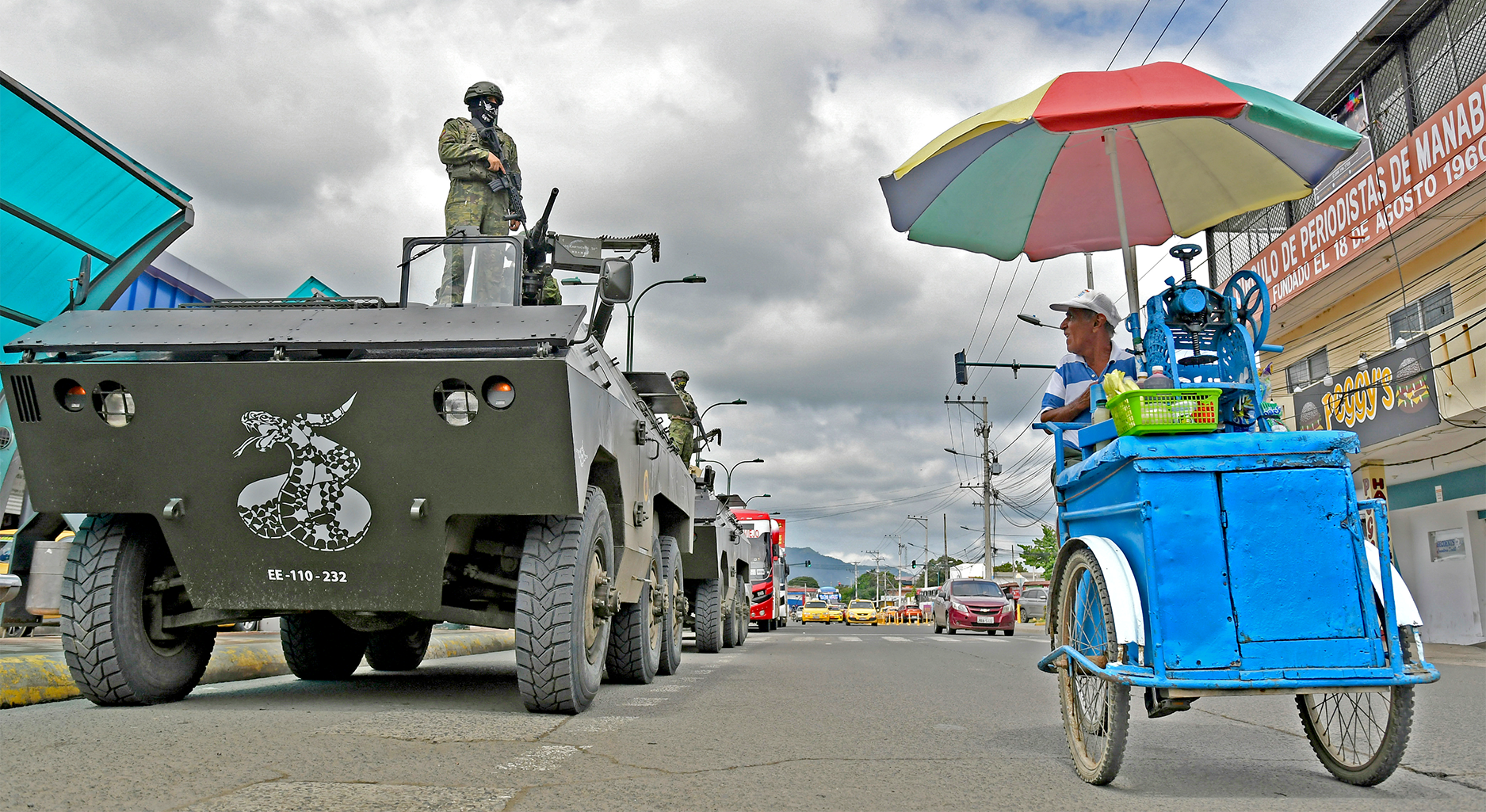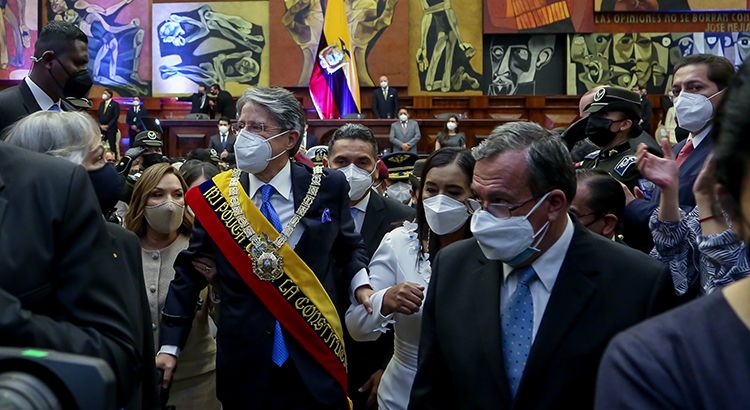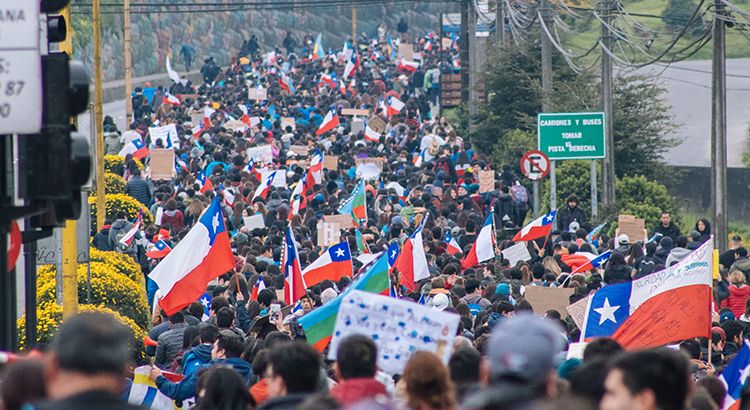Freie Fahrt für harte Hand? Ecuadors militärischer Kampf gegen das Verbrechen geht in die zweite Runde
Am 24. Mai 2025 hat Daniel Noboa sein altes, neues Amt als Präsident Ecuadors angetreten. Damit endet nach anderthalb Jahren Noboas Amtszeit als gewählter Übergangspräsident, die im November 2023 begonnen hatte, und seine erste reguläre Amtszeit beginnt. Die Herausforderungen könnten dabei kaum größer sein. In diesem Beitrag beleuchten wir Bilanz und Pläne Noboas mit Blick auf den „Krieg“ gegen das Verbrechen, den der Präsident im Januar 2024 ausgerufen hatte.



